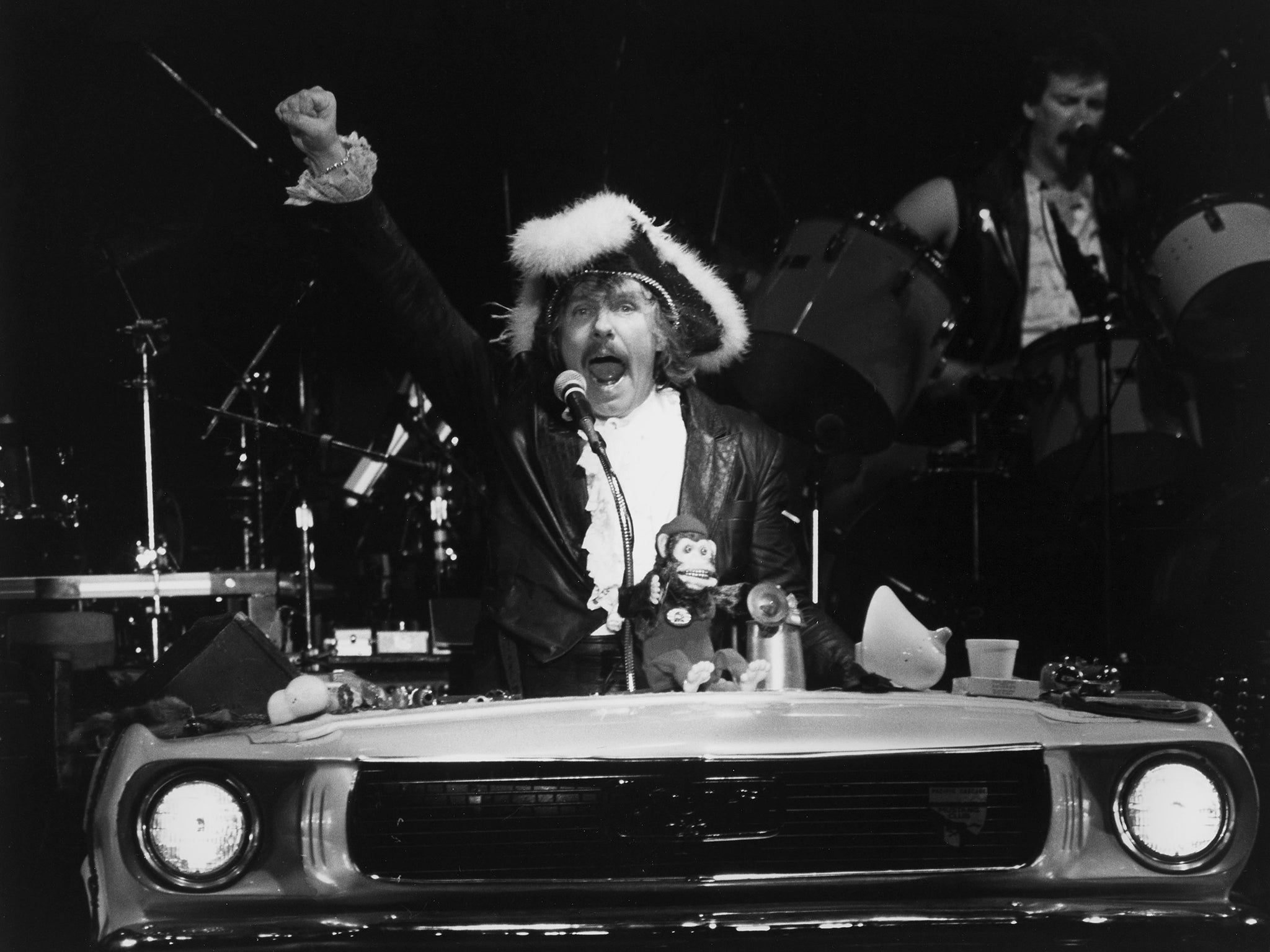Paul Revere: Singer who rose to fame on the back of the British beat invasion of the US but ended up as a novelty act
The beat group Paul Revere and the Raiders had no intention of repelling the British sound: they embraced it and their US hit records owed much to the raucousness of the Kinks and the Rolling Stones

Your support helps us to tell the story
From reproductive rights to climate change to Big Tech, The Independent is on the ground when the story is developing. Whether it's investigating the financials of Elon Musk's pro-Trump PAC or producing our latest documentary, 'The A Word', which shines a light on the American women fighting for reproductive rights, we know how important it is to parse out the facts from the messaging.
At such a critical moment in US history, we need reporters on the ground. Your donation allows us to keep sending journalists to speak to both sides of the story.
The Independent is trusted by Americans across the entire political spectrum. And unlike many other quality news outlets, we choose not to lock Americans out of our reporting and analysis with paywalls. We believe quality journalism should be available to everyone, paid for by those who can afford it.
Your support makes all the difference.In 1964 Paul Revere shouted, “The British are coming!” The second coming, you might say, but this time the Americans reached for their dollars rather than their muskets.
The beat group Paul Revere and the Raiders had no intention of repelling the British sound: they embraced it and their US hit records owed much to the raucousness of the Kinks and the Rolling Stones.
Paul Revere Dick was born in Harvard, Nebraska in 1938 and studied the piano as a child. He loved the anarchy of Spike Jones and his City Slickers, an unlikely influence for a rock musician. When the family was in Boise, Idaho he formed the Downbeats, and when he was joined by Mark Lindsay on vocals they became the Raiders. The maverick producer Kim Fowley heard them and recorded “Like, Long Hair”, an instrumental based on a Rachmaninoff prelude and featuring Revere, which became a US Top 40 hit in 1961.
In 1963 they recorded “Louie Louie” but their version was upstaged by the Kingsmen. They did, however, come to Dick Clark’s attention. His American Bandstand show was faltering because the East Coast teen idols like Frankie Avalon and Bobby Rydell were losing ground to the British acts, and to the Beach Boys on the West Coast. He moved to Los Angeles for a new daily TV series, Where The Action Is, and Paul Revere and the Raiders became the resident band, also recording the theme song.
Signed to Columbia, they were produced by Doris Day’s son Terry Melcher, who told Revere he should switch to Vox organ like the Animals. They had a Top 20 single with “Just Like Me”, a rewrite of “Louie Louie”, and then a million-selling single with “Kicks”, an anti-drugs song written by Barry Mann and Cynthia Weil. David Crosby lambasted this track, but then his stance on illegal substances was somewhat different. Mann and Weil also wrote the anthemic “Hungry”, another US hit.
Getting the fashions right can be as important to an act as their music. David Bowie and the Small Faces are proof of that, but Paul Revere and the Raiders got it spectacularly wrong. Dick Clark encouraged them to dress as American revolutionaries in three-cornered hats, frilly shirts, breeches and thigh-length boots. They looked like a novelty act and even appeared as such in the TV series Batman. Despite the obvious quality of their music, the British public ignored their American hits like “The Great Airplane Strike” and “Good Thing”, a classy example of blue-eyed soul.
In the psychedelic era they made the big-selling albums The Spirit Of ’67 and Revolution!, the exclamation mark suggesting that they weren’t entirely serious. Their playing improved, but it is thought Melcher used such session men as Leon Russell (for Revere), Van Dyke Parks and Ry Cooder instead of the band.
In 1971 the Raiders topped the US charts with John D Loudermilk’s “Indian Reservation” (with the group dressed as American Indians) and then scored with Joe South’s song “Birds Of A Feather”. By then Revere and Lindsay were the only originals left, and when Lindsay went solo in 1975 Revere steered the band into a semi-novelty act for the casinos. He was a dynamic front man, but the group lost whatever street cred it had enjoyed.
Paul Revere Dick, musician: born Harvard, Nebraska 7 January 1938; married (one son); died Garden Valley, Idaho 7 October 2014.
Join our commenting forum
Join thought-provoking conversations, follow other Independent readers and see their replies
Comments